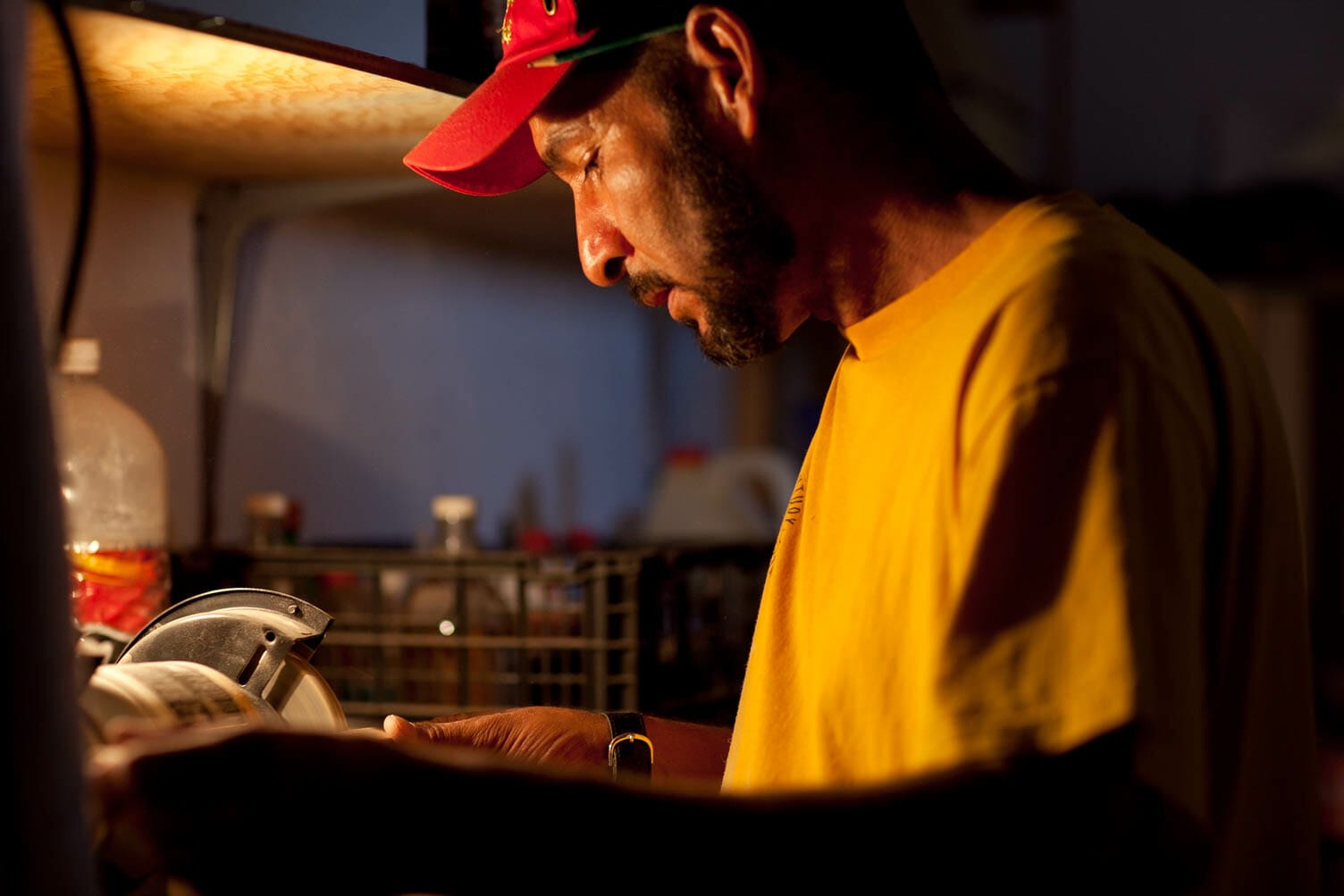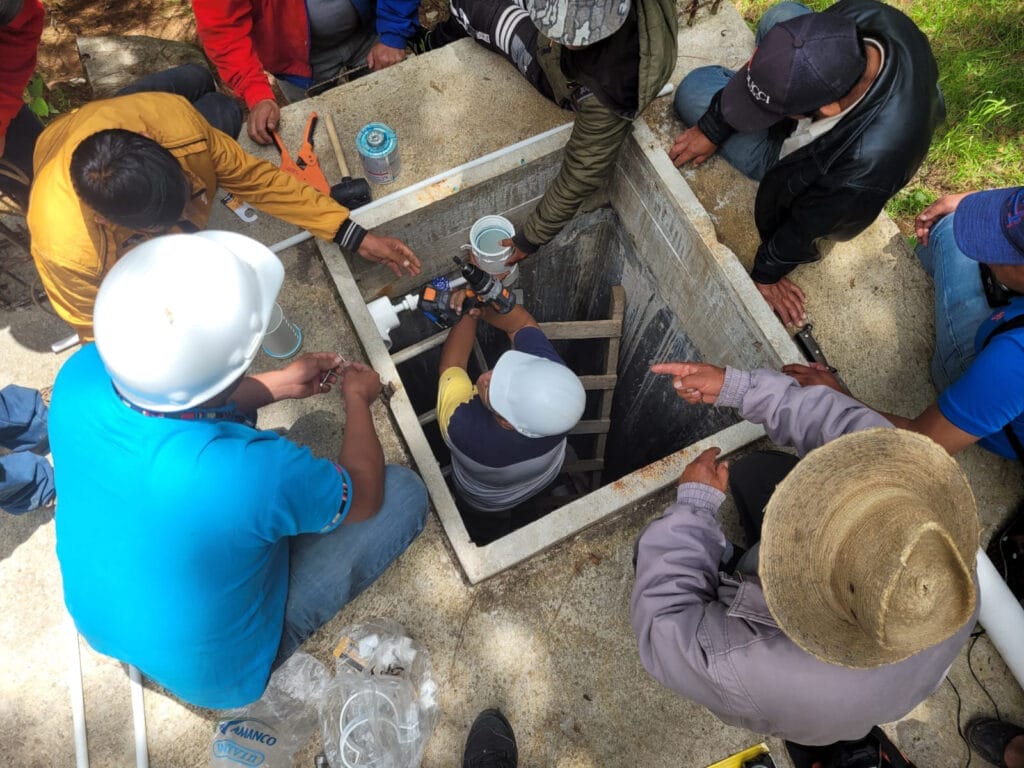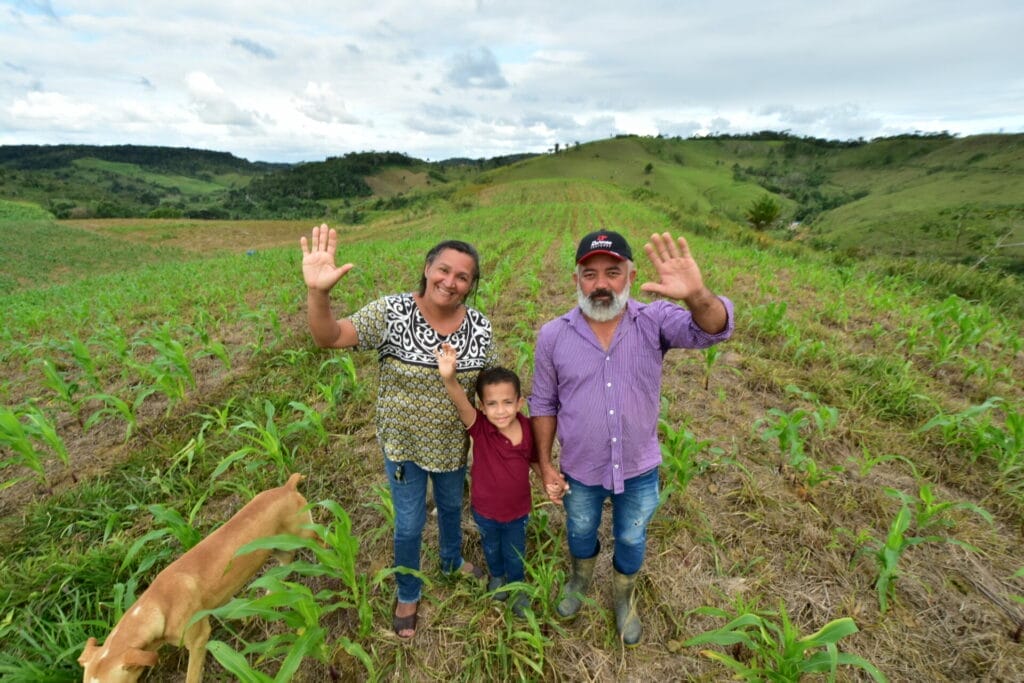As a global organization with deep roots in San Diego, California, cross-border work with communities in Tijuana, Mexico and other Mexican states has been a central part of our focus on public health from the very beginning.
Global Communities (formerly operating as PCI), has worked for six decades implementing health and development programs with Mexican communities, including programs to improve maternal and child health, reduce the spread of infectious diseases, including HIV/AIDS and tuberculosis, strengthen public health and prevent violence.
Mexico is the third-largest country in the Americas with a population of over 126 million people, where almost half of the country’s citizens lives on less than $4 per day.
Global Communities has worked across the U.S.-Mexico border, implementing health and development programs that demonstrate the ways we are all connected. The COVID-19 pandemic proved again that public health does not recognize borders, and that working together, we can build a healthier future for all.
Preventing Tuberculosis at the U.S.-Mexico Border
Globally, one quarter of the world’s population is infected with the bacterium that causes tuberculosis (TB). Even though the disease is curable and its spread is preventable, a total of 1.5 million people died from TB in 2020. Worldwide, TB is the second leading infectious killer after COVID-19. In Mexico, TB is a significant public health concern, particularly in the country’s urban areas. Global Communities (formerly operating as PCI) was an instrumental partner in building the capacity of health systems and staff at national, state and jurisdictional levels to take a coordinated, person-centered approach to TB screening and treatment, which improves quality of care and mitigates stigma and discrimination. Mexico is now a leader in the management of TB-Diabetes, due in large part to Global Communities' efforts to improve coordination between the Mexican Ministry of Health’s National TB and Diabetes Programs to improve screening, diagnosis and early detection of the disease.
Currently, Global Communities is partnering with the County of San Diego Health and Human Services Agency to increase the completion of TB treatment along the U.S.-Mexico border (San Diego, Tijuana, Rosarito and eastern Tecate regions). Global Communities’ Cross-Border Outreach and Directly Observed Therapy (DOT) team, under its local affiliate Medicina Social Comunitaria, ensures that every individual who is suspected or diagnosed with TB is appropriately evaluated in the U.S. or in Mexico, including a complete medical evaluation with the patient's medical history, and receives comprehensive, client-centered care and follow up.
70,000
children reached in Tijuana through Well Baby Clinics, contributing to the decline of child malnutrition in the region
Recent Programs
Promoting Healthy Children & Families in Tijuana
For over 25 years, Well Baby Clinics promoted the healthy development of families and children living in Tijuana’s most vulnerable and difficult to access communities. Staff from Global Communities, (formerly operating as PCI) medical doctors and trained community health workers provided services for approximately 2,500 children per year, including life-saving immunizations, growth monitoring, health education, including nutrition counseling and information on chronic diseases such as diabetes, and referrals to primary and specialty health care professionals. Recognizing the important role of the whole family in health, the clinic extended its services to adults by providing nutrition counseling, promotional and educational materials, and cervical cancer prevention activities.
Disaster Response & Recovery in Mexico
For more than a decade, Global Communities (formerly operating as PCI) responded to emergencies caused by natural disasters throughout Mexico, including hurricanes, floods and earthquakes. Global Communities focused on mobilizing rapid responses to provide shelter and other basic necessities and also worked with affected communities to restore livelihoods and begin the path toward long-term recovery. Following the devastating earthquakes that struck southern Mexico in 2017, Global Communities improved the capacity of the Mexican Ministry of Health to identify and address the mental health needs of residents living in communities affected by the earthquakes. By engaging participants from all health jurisdictions in Oaxaca state, the project contributed toward improving future emergency mental health responses in the region.
Our Work in Mexico
Governance
Strengthening Civil Society, Democracy and Responsive Government
Health
Combating Disease, Improving Nutrition, and Ensuring Healthy Mothers, Children and Adolescents
Sustainable Development
Standing with Communities as They Shape Their Own Future
Resources
Research & Publications
Using Behavioral Change Communications Intervention to Create Demand and Enhance PrEP Uptake in South Sudan
This poster, presented in 2024 at the 25th International AIDS Conference by IntraHealth International – Global Communities’ subsidiary – presents the results of a behavioral change communication strategy aimed at increasing the uptake of pre-exposure prophylaxis (PrEP) in South Sudan. Main finding. PrEP uptake in South Sudan increased three-folds in one year, from zero in…
Research & Publications
Testing Outcomes of HIV-Exposed Infants (HEI) in Botswana
This poster, presented in 2024 at the 25th International AIDS Conference by Global Communities, showcases the results of a study on early infant diagnosis in Botswana. Main finding. Testing rates for HEI are high in Botswana and the uptake of testing is growing; however, mothers do not fully comprehend the HEI testing protocols. Key takeaway.…
Research & Publications
From Policy to Practice: The HIV Care and Treatment Project’s Experiences in Transitioning to an Optimized Regimen in Honduras
This poster, presented in 2024 at the 25th International AIDS Conference by IntraHealth International – Global Communities’ subsidiary – highlights the results of capacity strengthening interventions aimed at ensuring effective implementation of the national plan to transition to an optimized HIV treatment regimen in Honduras. Main finding. Transition of regimens represents a logistical challenge to…
NEWS
Latest stories from the blog

School Meals Expand the Right to Food for a Better Life and Future
By Joseph Bangnikon, Sr. Technical Advisor, Food Security Many children in low-income countries endure their entire school day without a nutritious meal, a situation that …
Read More



